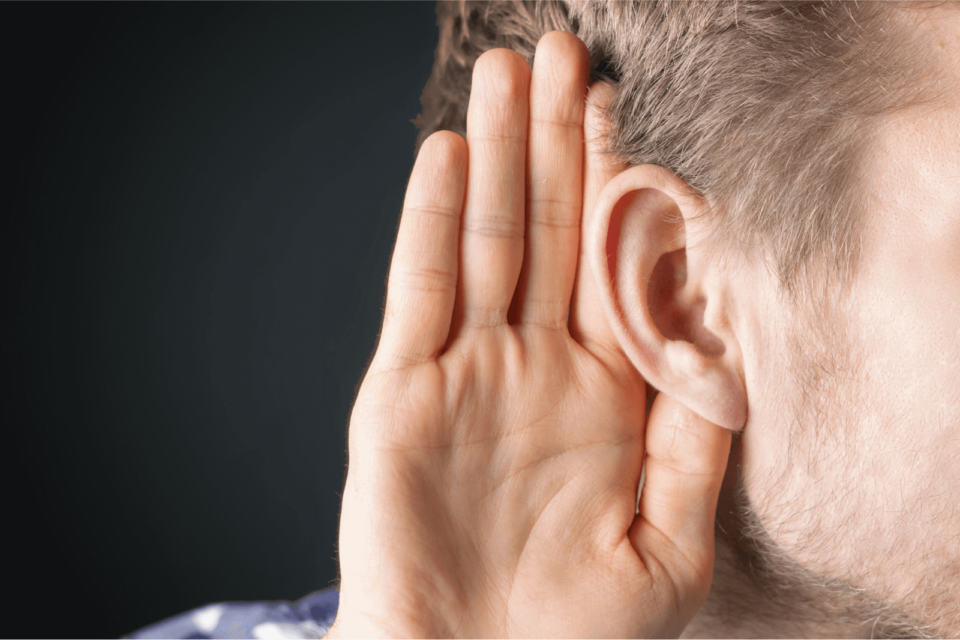- The Impact of Pets on Emotional and Hearing Health - April 26, 2024
- Strategies for Coping with Single-Sided Deafness - April 16, 2024
- Effective Strategies for Sharing Your Hearing Loss Journey - April 16, 2024
Two of the most common kinds of hearing loss are sensorineural hearing loss and conductive hearing loss. Sensorineural hearing loss is the most common type of hearing loss, often associated with aging. But what is conductive hearing loss? Let’s demystify this often-overlooked hearing condition.
Conductive Hearing Loss
Conductive hearing loss comes with its own unique causes and challenges. Conductive hearing loss stems from issues in the outer or middle ear that block sound waves from getting to the inner ear. Unlike sensorineural hearing loss, which involves damage to the inner ear or auditory nerve, conductive hearing loss typically relates to physical barriers preventing sound from reaching the inner ear.
Understanding the Mechanics
Picture the ear as a complex system of interconnected parts. First, the outer ear acts as a funnel, directing sounds toward the ear canal. Sound waves enter the ear canal, causing the eardrum to vibrate. These vibrations then travel through the middle ear bones, called the ossicles, before reaching the inner ear. In the inner ear, sound waves are converted into electrical signals and transmitted to the brain for interpretation. If sound waves can’t reach the inner ear, you’ll experience hearing loss.
Conductive hearing loss impacts the outer or middle ear. You may experience hearing loss if there’s any kind of problem with your outer ear, ear canal, or middle ear. Some of the most common causes of conductive hearing loss include earwax buildup, middle ear infections, or structural abnormalities in the ear canal or ossicles.
What Causes Conductive Hearing Loss
There are several causes of conductive hearing loss:
- Earwax Buildup: The natural buildup of earwax can obstruct the ear canal, forming a barrier that blocks sound waves from reaching the middle ear. This blockage can significantly affect your hearing.
- Ear Infections: Among the most prevalent culprits of conductive hearing loss, acute or chronic infections within the middle ear can lead to a buildup of fluid. This hinders the transmission of sound. While this condition frequently affects children, it can impact individuals of any age.
- Otosclerosis: If you have abnormal bone growth within the middle ear, the bones in the inner ear may not move normally. This decreases sound transmission of sound, leading to conductive hearing loss.
- Perforated Eardrum: Any damage to the eardrum, like a tear or hole, will disrupt your hearing.
The Signs and Symptoms of Conductive Hearing Loss
If you have conductive hearing loss, you may notice some of the common signs and symptoms of hearing loss, including:
- Reduced sound clarity, as if sounds are muffled or distant.
- Difficulty in understanding soft-spoken conversations.
- A sensation of fullness or blockage in the affected ear.
- A tendency to turn up the volume on electronic devices.
- Frequent ear infections or discomfort in the ear.
Other symptoms can include changes in mood, feeling socially isolated, or even struggling with depression.
Treating Conductive Hearing Loss
The good news is that conductive hearing loss is often treatable. Start by booking an appointment for a hearing test! We’ll perform a comprehensive evaluation to test your hearing abilities. We’ll also ask about your health history to find out if you’ve frequently had ear infections or any ear injuries. We’ll take a closer look at your ear to check for earwax or any other signs that something is blocking your hearing.
The treatment for conductive hearing loss varies depending on what caused your hearing loss. Some treatment options include removing earwax, administering antibiotics for infections, or having a surgical procedure to correct structural issues. In some cases, hearing aids or cochlear implants may be recommended to amplify sounds and improve hearing.
After treatment, it’s important that you have regular hearing tests and monitor your hearing health to track your progress and make any necessary adjustments.
Take the Next Step in Better Hearing
Conductive hearing loss has a significant impact on hearing health. Have you noticed any signs of hearing loss? If you think you might have conductive hearing loss or you’re experiencing any hearing-related concerns, get in touch and book a hearing test! By taking proactive steps, you’ll be on a path toward better hearing and an improved quality of life. Find out more about the benefits of treating hearing loss.

